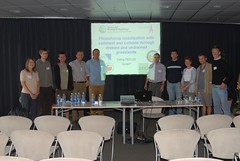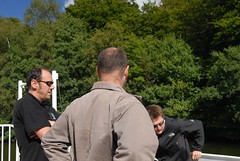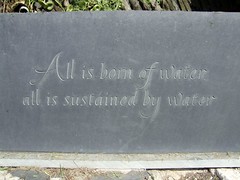http://www.agwaterquality.org/2007conference/
The 2007 National Conference on Agriculture & the Environment is a consortium of university and private researchers, nonprofit organizations, and governmental agencies with an interest and expertise in agriculture and natural resource protection. The purpose of the conference is three-fold: (1) to highlight trends in data collection methodologies and data findings; (2) examine case studies in agricultural and environmental stewardship; and (3) foster the cross pollination of new ideas, technologies, and methodologies among leading resource protection professionals.
The conference will focus on the following main session topics:
• Water Quality Monitoring: Data, Methodology, Trends & Advancements
• Exemplary programs for agricultural water quality monitoring
• Watershed surface and ground water monitoring
• Monitoring for on-farm management practices and pollution prevention
• Monitoring for TMDLs, beneficial uses, ag waiver policies
• Trends in research methodology and findings
• Food Safety & Environmental Protection: Conflicts and Compatibilities
• Food safety research studies and findings
• Food safety policy: regulation, marketing, and agricultural practices
• Agricultural environmental policy
• Demonstrated conflicts between food safety and environmental protection
• Areas of compatibility between food safety and environmental protection
• Agricultural & Environmental Innovations
• Technological advancements
• Environmental compliance and permit coordination
• Conservation practices
• Water use efficiency
• Practice innovations
• Urban, rural, and agricultural outreach
• Case studies in Timber Management
• The Sustainability Factor: Exploring the nexus between agricultural and environmental sustainability
• Sustainability defined
• Local movements toward sustainability
• Business & economic implications of environmental protection
• Agricultural Interfaces: Exploring the interfaces between agriculture, natural resources, and local communities
• Agricultural & Urban interfaces
• Agricultural & Riparian/Slough/Wetland interfaces
• Conservation Easements
• Case studies in timber management
• Rangeland management and stewardship


.jpg)






























